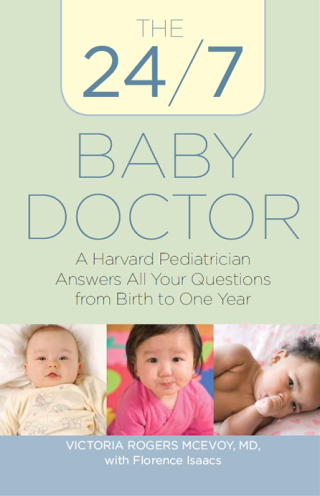 In the last couple of posts we've discussed the idea of taking responsibility for yourself and "building your own ship" and we've also gone through a few common reasons why physicians aren't the best at career modification.
In the last couple of posts we've discussed the idea of taking responsibility for yourself and "building your own ship" and we've also gone through a few common reasons why physicians aren't the best at career modification.
In this post, I'd like to spend a little time introducing you to the idea of "lifestyle design," something that has become a bit of a buzz-phrase in the business world but as far as I can tell hasn't penetrated the world of medicine just yet (for a lot of reasons).
I'll begin with a personal story...
When I jumped off the academic track in 2006, I wasn't exactly sure what I wanted to do as a career but I knew I wanted something unique. My idea was to design a career that was flexible, fun, adventurous, and meaningful, all the while paying my bills and being a responsible spouse and parent. Simple, huh?
I spent months thinking about how to do this as a physician. I searched websites and blogs. I spoke with mentors and colleagues. I read the literature, all to no avail. There seemed to be no conversation about a career like this in medicine. I mean, there were a few articles about volunteer opportunities or non-traditional careers, but nothing really like what I was trying to create.
What I found, though, was that while the medical community was silent about how to develop a very non-traditional and interesting career, the business world had already awakened to the idea. Within the world of business, the idea of becoming a "free agent" and overhauling your career through "lifestyle design" was beginning to pick up steam.
Around this time I picked up a copy of the book Free Agent Nation by Daniel Pink. I'm not sure how I found this book, but it became a sort of manifesto for me. In this book, Dan explains how more and more individuals were escaping their cubicles to become independent free-lancers and living their lives with increasing flexibility and empowerment. It was a great read and it hit me at a very important time. Through this book I realized that I was not alone in my desire for more autonomy, and that a lot of workers who had already yanked themselves off the grid were thriving. I was hooked.
The second book I read was a book that has become a bit of a cult classic already, Timothy Ferriss' text, The 4-Hour Workweek . This book is a basic introduction to how Tim built a stream of residual income and then used his extra time and money to explore his interests and live a more interesting life. It was Tim's book that introduced me to the term "lifestyle design," and while the phrase might seem a bit hokey, it's a very powerful concept. Basically, what Tim discusses in his book is the idea that it is possible to live an incredible life if you prioritize correctly, live frugally, and develop your entrepreneurial side. Some have criticized the book recently, explaining that no productive person-- not even Tim Ferriss himself-- really only works four hours a week-- but I would argue that that's not really the point. The catchy title sells books, but it's the mindset Tim describes that is the reason why the book is an important introduction for individuals who feel helplessly caught in a hamster wheel at work. Tim's point is that you can-- through ingenuity and hard work-- leap off the hamster wheel and into something much better.
So how does all this apply to physicians?
Well, when you have a career discussion with most physicians, it often boils down to whether or not that individual wants to continue practicing clinical medicine or go into a nonclinical job. There's nothing wrong with either, mind you, and I have friends who have great careers in each; however, for me and for many other physicians, I suspect, this approach is just too simplistic.
The fact is, I like clinical medicine. I've spent a of of time getting good at what I do and I'd like to continue to be able to help people by providing good clinical care to patients who need it. I also like many aspects of the nonclinical opportunities available to physicians-- things like consulting, writing, medical device development, and many other niches really appeal to me.
My main question is not whether I want to practice clinical medicine or jump into a nonclinical career, it's how do I design my life to be able to practice medicine, participate in the nonclinical activities I enjoy, and still have the flexibility to pursue life outside of medicine? Discussions about clinical versus nonclinical are at their core too reductionistic for most modern physicians. What most modern physicians really need to be having are overarching discussions about how to design a lifestyle that incorporates the multiple facets of their career interests and also does not overlook the ultimate (and most likely unspoken) goals they have for their lives. This is a much deeper conversation, but one that is desperately needed today in this time of significant upheaval in our healthcare system.
So where do you begin if you're a physician and you are interested in exploring this idea of "lifestyle design?"
Well, don't go to the career advice section of your specialty journal and certainly don't go to the HR person at your hospital or academic institution.
In my opinion, you should begin by checking out the conversations going on in other fields. There are some incredible websites built around some really creative and interesting people who are living fascinating lives and teaching others how to do the same. Check out the following as a starting point:
Once you immerse yourself in this culture you begin to see possibilities that you never would have realized before. What's more, as a physician there are even more possibilities available to you than for the typical person, if only you'll step out and take a little risk.
Over the last few years this idea of lifestyle design has been a focal point of my thinking when it comes to career moves and ultimate goals. I've invested a lot of time, cash, and sweat into learning how to build a unique career, and my hope with Freelance MD is that we can use this website as a vehicle to help other physicians, just like you, succeed in designing a lifestyle and career they truly enjoy.
 Email This Article tagged:
Email This Article tagged:  24/7 Baby Doctor,
24/7 Baby Doctor,  Harvard Medical School,
Harvard Medical School,  Victoria McEvoy MD |
Victoria McEvoy MD |  Dec 25, 6:00 AM
Dec 25, 6:00 AM 











